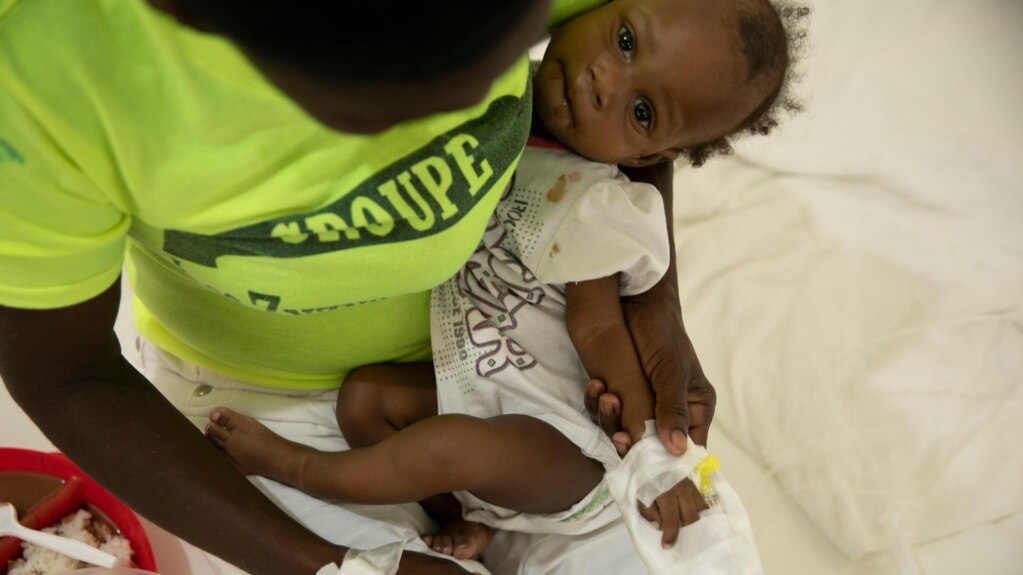The United Nations and Haiti are seeking $146 million to help fight a cholera outbreak that has already killed at least 175 people.
Health officials in Haiti say cholera cases have quickly been rising since life started returning to normal after a fuel blockade halted many forms of business and services.
The blockade forced gas stations to close, hospitals to reduce services and banks and stores to limit hours. The blockade was established in mid-September by a powerful Haitian gang. The gang recently lifted the blockade and gas stations reopened last weekend across Haiti.
Dr. Jeanty Fils is a spokesman for Haiti’s Ministry of Health. He told The Associated Press that people are back on the streets and likely spreading cholera as the government struggles to contain the problem.
“We need more resources,” Fils said. “Cholera cases continue to climb in Haiti.”
The Pan American Health Organization (PAHO) estimates at least 175 people have died from the latest Cholera outbreak and more than 7,600 have been hospitalized. The actual number of cases is likely much higher because of under-reporting of the disease.
The worsening situation in Haiti led the government, the U.N. and other partners to appeal for $146 million to help fight cholera. Health officials fear that at least half a million people in Haiti are at risk of becoming infected.
Ulrika Richardson is a Special U.N. Representative in Haiti. She called the rising case count and fast spread of the disease across the country “worrying.”
Fils noted that cholera cases were likely contained during the fuel blockade since gas stations were closed and many in the country of more than 11 million people remained home.
Stephanie Mayronne is a medical operations official for Doctors Without Borders. She said if people sickened with cholera start traveling to areas with poor sanitation and a lack of drinking water, the number of cases will likely keep rising. “It’s a match that can light a fire,” Mayronne added.
The number of patients seeking help at Doctors Without Borders hospitals in the capital of Port-au-Prince greatly increased in recent weeks. So far, more than 6,500 patients have been admitted. Beds filled up so quickly that the aid group was forced to open a fifth center two weeks ago, said Doctors Without Borders official Alexandre Marcou.
The PAHO told the AP it is supporting Haiti’s government in preparing a request for cholera vaccines and planning to launch vaccination campaigns. But health experts say it remains unclear when those efforts will begin.
In October, the World Health Organization (WHO) announced a worldwide cholera vaccine shortage that forced it to suspend its usual two-dose administration policy. Mayronne of Doctors Without Borders noted that a single dose can lower one’s risk by only 40 percent.
The world health body said the shortage happened “at a time of unprecedented rise in cholera outbreaks worldwide.” At least 29 countries have reported cholera cases this year, compared with fewer than 20 on average for the past five years, the WHO said.
I’m Bryan Lynn.
The Associated Press and Agence France-Presse reported on this story. Bryan Lynn adapted the report for Learning English.
_______________________________________________________
sanitation – n. a system for protecting people’s health by removing dirt and waste
match – n. a thin, wooden stick that produces a flame when it is rubbed against a rough surface
dose – n. a measured amount of medicine taken at one time
unprecedented – adj. never having happened before
____________________________________________________________
What do you think of this story? We want to hear from you. We have a new comment system. Here is how it works:
Each time you return to comment on the Learning English site, you can use your account and see your comments and replies to them. Our comment policy is here.

